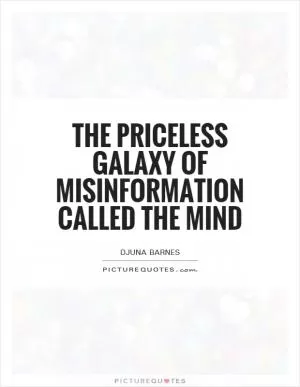To love without criticism is to be betrayed

To love without criticism is to be betrayed
Djuna Barnes, a prominent American writer and artist, is known for her bold and unconventional approach to love and relationships. Her works often explore the complexities of human emotions, particularly the idea of love without criticism. In the context of Barnes' writing, the statement "to love without criticism is to be betrayed" takes on a profound and thought-provoking meaning.Barnes' most famous work, "Nightwood," delves deep into the intricacies of love and desire, portraying characters who are consumed by their passions and unable to see the flaws in their relationships. The novel challenges traditional notions of love and romance, presenting a raw and unfiltered portrayal of human emotions. In this context, the idea of loving without criticism can be seen as a form of betrayal, as it involves turning a blind eye to the faults and shortcomings of the person one loves.
Barnes herself lived a tumultuous and unconventional life, often engaging in relationships that were fraught with conflict and turmoil. Her personal experiences undoubtedly influenced her views on love and criticism, leading her to explore the complexities of human relationships in her writing. In Barnes' world, love is not always a pure and perfect emotion, but rather a messy and complicated affair that requires constant evaluation and introspection.
The statement "to love without criticism is to be betrayed" can be interpreted as a warning against blind devotion and unconditional love. Barnes suggests that true love requires a willingness to confront and address the flaws and imperfections of the person one loves, rather than simply accepting them without question. By failing to criticize and evaluate our relationships, we risk betraying ourselves and our own values, as well as the person we claim to love.












 Friendship Quotes
Friendship Quotes Love Quotes
Love Quotes Life Quotes
Life Quotes Funny Quotes
Funny Quotes Motivational Quotes
Motivational Quotes Inspirational Quotes
Inspirational Quotes